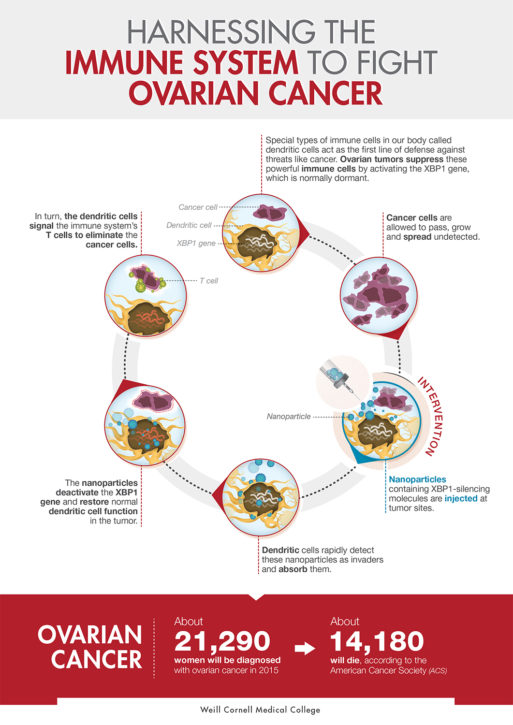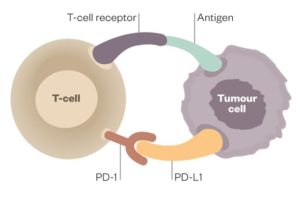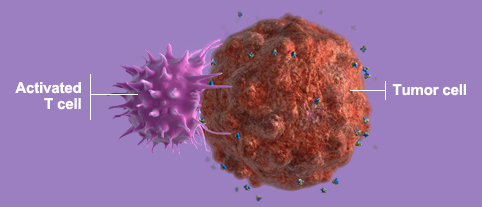Approximately 22,000 women will be diagnosed with ovarian cancer this year, resulting in over 14,000 deaths. This makes it the leading cause of death from gynecologic cancers in the United States. Also known as “the cancer that whispers,” ovarian cancer often spreads to other organs before it is detected or symptoms become prevalent.
While advances have been made in finding and treating the disease, survival rates have only improved moderately. According to the Cancer Research Institute, 80 percent of ovarian cancer patients experience recurrent disease, and more than 50 percent die in less than five years post-diagnosis.
While these statistics may be startling, new advances in immunotherapy offer promising results. Early this past February, the American Society of Clinical Oncology (ASCO) released its “Clinical Cancer Advances 2017” report. It labeled immunotherapy the “2017 Advance of the Year” due to the progress achieved over the past 12 months. ASCO President Daniel F. Hayes, MD, FASCO, FACP tweets that, “Research has proven this approach can be effective against a wide range of hard-to-treat advanced cancers previously considered intractable.”
What Is Immunotherapy?

Credit: Weill Cornell Medicine
Immunotherapy is a broad category of cancer therapies that boost the body’s natural defenses against cancer. In the past, it has worked well for those with ovarian cancer and has since helped those with hypermutated cancers, such as those caused by tobacco or UV light exposure. It has also been extremely beneficial for patients with bladder cancer, head and neck cancers, Hodgkin lymphoma and lung cancer.
Jyoti D. Patel, a professor of medicine at the University of Chicago and a past member of ASCO, states, “Immunotherapy is one of the most important advancements we’ve made in the treatment of cancer in the past decades…We are learning how to combine it with other therapies to improve outcomes for all patients.”
Immunotherapy uses medicines made in a laboratory to improve and restore immune system function. One reason that cancers such as ovarian cancer go undetected is that the immune system fails to identify the cells that cause cancer as malignant. One type of immunotherapy called checkpoint inhibitors disrupts the signals that allow cancer cells to hide from an immune attack.

Credit: www.pharmecutical-journal.com
Of course, there are many other types of immunotherapies that fall under the umbrella term. Cytokines are a type of protein molecule that helps regulate and direct the immune system. Cancer vaccines are also immunotherapies that treat cancer by helping the patient’s own immune system target cancer cells.
Dr. Patel states that there are currently “over 900 trials in immunotherapy drugs ongoing in the United States. We’re just understanding how to put the pieces together.”
Hopefully, as researchers study these immunotherapies further, they will become a solution for the world’s deadliest killer.
Check out more information on immunotherapy and its benefits here.

 Immunotherapy: The Newfound Hope for Ovarian and Other Cancers
Immunotherapy: The Newfound Hope for Ovarian and Other Cancers



 “Help Me, Helen”
“Help Me, Helen”

 “As Tears Go By” by Marianne Faithfull
“As Tears Go By” by Marianne Faithfull














